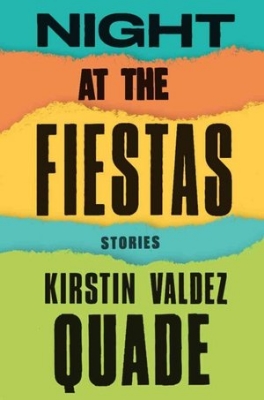Welcome to Songs, Stories, and Spirits. We’ll be jamming unwanted opinions on good music, good stories, and good booze down your ears, eyes, and throats on a weekly basis. We hope you enjoy. And if you don’t, there is a comment section below that we more than welcome you to ignore! Cheers!
Song: “When First Unto This Country” by Crooked Still
Daniel Ford: Fridays call for rollicking Americana. This rendition of “When First Unto This Country,” performed by Crooked Still, has been on repeat since my interview with author Taylor Brown. Who doesn’t like a tune about horse thieving, tortured love affairs, and early American angst? It’s a damn good thing we figured out our immigration policies because we’d have a lot more songs with lyrics like:
They beat me and they banged me
And they fed me on dry beans
'Til I wished to my own soul
I'd never been a thief
Most likely, any music crafted today based on our current political and cultural situation would feature Donald Trump screaming on a continuous loop. And, sadly, it would win a Grammy…
But don’t be glum! It’s Friday! If you’re like me, you’re going to enjoy this tune and then binge-listen to the rest of Crooked Still’s work. You won’t be disappointed!
Story: “My Grandmother Tells Me This Story” by Molly Antopol
Daniel: I have a soft spot for family yarns. I based an entire novel on my personal history, so I gravitate to those tales that have a messy family dynamic at their cores.
That’s one of the reasons why I’m such a big fan of Molly Antopol. Her short story collection The UnAmericans explored Cold War-era East European politics and Jewish American liberalism, while also featuring themes based on the author’s family history.
Also, in light of the turbulent 2016 Presidential campaign, it’s worth revisiting what Antopol told me during our interview earlier this year:
I was really interested in thinking about this notion of “Un-American-ness” for these characters—dissidents and academics, banned artists and writers—who risked their lives for their politics in their mother countries and are then forced to reinvent their identities in the United States, a country where they’re treated as anything but American.
Those issues are further discussed in Antopol’s harrowing, 2015 O. Henry Prize-winning short story.
“My Grandmother Tells Me This Story”
Some say the story begins in Europe, and your mother would no doubt interrupt and say it begins in New York, but that’s just because she can’t imagine the world before she entered it. And yes, I know you think it begins specifically in Belarus, because that’s what your grandfather tells you. I’ve heard him describing those black sedans speeding down Pinsker Street. I’ve been married to the man almost sixty years and know how he is with you—he makes every word sound like a secret. But he wasn’t even there. He was with his youth group by then and even though I was there I don’t remember being scared. Even when they knocked on our door, I didn’t know what was happening. Even when they dragged us outside with our overstuffed suitcases spilling into the street, shouting through megaphones to walk in the road with the livestock, I still didn’t know. I was thirteen.
The story really starts in the sewers.
Read the rest of the story on Econtone Magazine.
Spirit: Long Island Iced Tea
Stephanie Schaefer: I don’t think I’ve had a sip of a Long Island Iced Tea since I was 21, and there’s probably a good reason for that. One could call it a “melting pot” of a liquor because it's made with nearly every alcohol under the sun including tequila, vodka, light rum, triple sec, and gin. I wish I could tell you a fun anecdote about drinking the concoction, but let’s face it; nights featuring Long Island Iced Teas don't exactly result in vivid memories. Also, let’s not forget the time Writer’s Bone contributor Matt DiVenere said Long Island Iced Teas best defined his writing style.











